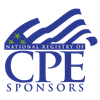
Payments Orchestration and Optimization: Smart Routing & Advanced Vaulting

In today's rapidly evolving payment landscape, organizations must adeptly orchestrate and optimize payment processes to maintain competitiveness and security in an increasingly digital world. The Payments Orchestration and Optimization: Smart Routing & Advanced Vaulting course equips payment professionals with the requisite knowledge and skills to navigate the complexities of modern payment ecosystems. Beginning with an exploration of payment orchestration platforms, participants gain insight into how these platforms streamline workflows, enhance flexibility, and seamlessly integrate with diverse payment systems and providers.
MRC Members: USD $75 (plus applicable taxes)
Non-members: USD $150 (plus applicable taxes)
The course significantly emphasizes smart routing, a cornerstone of payment orchestration, delving into its intricacies and benefits. Participants learn how smart routing optimizes transaction pathways, bolsters authorization rates, and reduces costs in payment processing. Simultaneously, they explore advanced vaulting, addressing the critical imperative for secure data storage and management. Through hands-on activities and practical exercises, participants acquire the expertise to implement and optimize these strategies, ultimately driving efficiency, security, and compliance in their organizations' payment operations.
FAQs
-
- eCommerce payment managers seeking to enhance their understanding of payments orchestration.
- Fraud prevention specialists who need to understand how payments orchestration can impact fraud management
- eCommerce business owners and managers looking to optimize their payment systems for efficiency and cost-effectiveness.
- Customer experience managers looking to optimize the customer experience through streamlined and efficient payment processes.
- The course may also benefit financial analysts, IT and technical professionals, compliance officers, and strategic planners and consultants in online retail.
- eCommerce payment managers seeking to enhance their understanding of payments orchestration.
- Fraud prevention specialists who need to understand how payments orchestration can impact fraud management
- eCommerce business owners and managers looking to optimize their payment systems for efficiency and cost-effectiveness.
- Customer experience managers looking to optimize the customer experience through streamlined and efficient payment processes.
- The course may also benefit financial analysts, IT and technical professionals, compliance officers, and strategic planners and consultants in online retail.
-
- Program Level: Basic
- Program Field of Study: Specialized Knowledge
- Program Delivery Method: QAS Self Study
- CPE Credits: 1.0
- Advanced Preparation and/or Pre-requisites: None
Please allow approx. 1 hour to complete this course. The course culminates with a comprehensive final assessment to evaluate the user's comprehension of the material. Upon successfully completing the final assessment, participants will be awarded a certificate of completion and CPE credits representing their proficiency in the subject matter.
- Program Level: Basic
- Program Field of Study: Specialized Knowledge
- Program Delivery Method: QAS Self Study
- CPE Credits: 1.0
- Advanced Preparation and/or Pre-requisites: None
Please allow approx. 1 hour to complete this course. The course culminates with a comprehensive final assessment to evaluate the user's comprehension of the material. Upon successfully completing the final assessment, participants will be awarded a certificate of completion and CPE credits representing their proficiency in the subject matter.
-
- Define payments orchestration
- List key challenges that payments orchestration aims to solve
- Outline how payments orchestration works
- Identify and describe the components of payments orchestration
- Identify the key benefits of payments orchestration for merchants
- Describe payment and fraud management costs
- Identify initiatives that drive more efficient cost ownership
- Outline key considerations for merchants looking to partner with a payments orchestration provider
- Define payments orchestration
- List key challenges that payments orchestration aims to solve
- Outline how payments orchestration works
- Identify and describe the components of payments orchestration
- Identify the key benefits of payments orchestration for merchants
- Describe payment and fraud management costs
- Identify initiatives that drive more efficient cost ownership
- Outline key considerations for merchants looking to partner with a payments orchestration provider
-
- MRC Members: USD $75 (plus applicable taxes)
- Non-members: USD $150 (plus applicable taxes)
MRC Education Accreditation

MRC Education Refund Policy